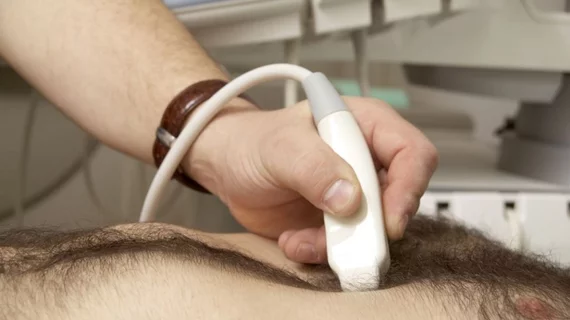Ultrasound helps catch vascular disease before cardiac symptoms surface
Ultrasound conducted before a patient develops cardiac symptoms could improve early detection of vascular problems, scientists in Leicester, England, reported this week.
The research, published in Ultrasound, comes two longitudinal ultrasound studies of vascular disease in mouse models. Since ultrasound is commonly used to detect and diagnose diseases like atherosclerosis, first author Justyna Janus and colleagues said it was an ideal modality to track arterial movement.
According to the study, Janus et al. put the mice under anesthesia before imaging them. With ultrasound, the researchers were able to observe how the animals’ arteries functioned in time with cardiac pulsation and relaxation.
The team found changes in the ability of the mice’s blood vessels to pulsate as their disease state worsened, they said, suggesting increased arterial wall stiffness and, down the road, vascular problems.
They said the study, though it centered on mice, could eventually help assess disease progression and ease symptoms in human patients.
“Our research shows that both lifestyle and genetic factors can lead to increased risk of vascular disease,” Mike Kelly, the preclinical imaging manager at the University of Leicester, said in a release. “Our study also suggests that the ultrasound methods we employed can detect early changes in blood vessel function that can serve as a marker for detection of disease.”

